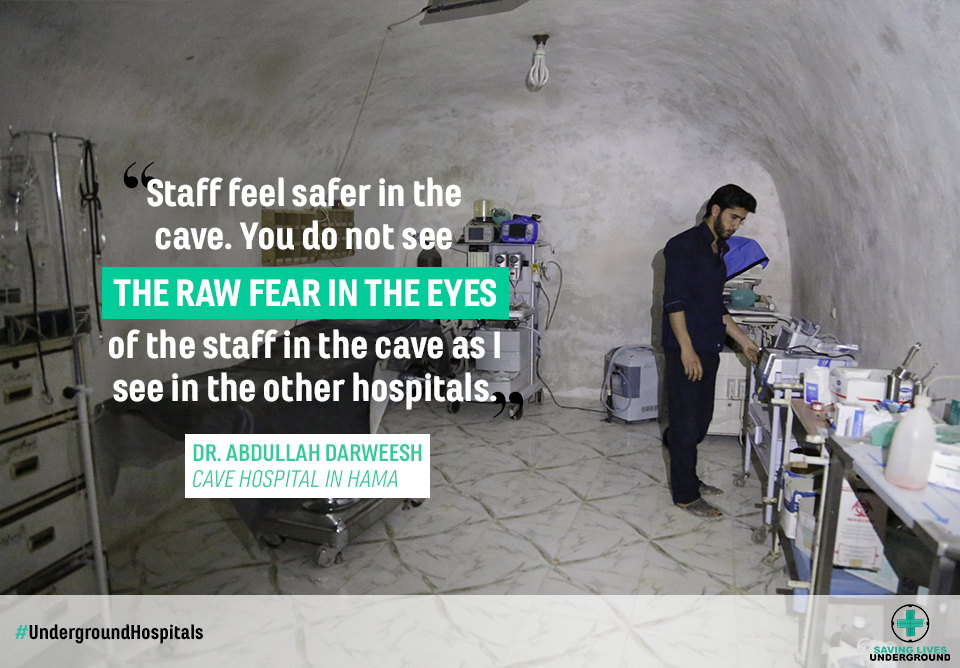Why This Charity Wants to Build Two Hospitals Underground

By:
Government attacks targeting hospitals in war-torn Syria are forcing doctors and patients underground.
 SAMS - sams-usa.net
SAMS - sams-usa.net
Getting the funds to build these subterranean facilities is a challenge, however, as international donor rules on how emergency budgets can be spent often prevent countries from financing these efforts, according to a recent report from the Syria Campaign, an advocacy group.
Under the current rules, spending on underground hospitals is considered "infrastructure building," which means it doesn't qualify as a humanitarian expense that can receive aid donations. So as targeted attacks continue to demolish above-ground hospitals and limit access to health care, advocacy groups such as the Syrian American Medical Society (SAMS) are turning to crowdfunding to construct makeshift facilities.
SAMS recently launched a campaign to raise enough funds to build two underground hospitals in western Aleppo.
"We've found that [these attacks are] widespread and systematic," Racha Mouawieh, a research associate at Physicians for Human Rights, told ATTN:. "But besides the attacks on the medical facilities and health workers, what we've found is also that, systematically, aid has not been delivered in areas under siege, including medical supplies."
"When you attack a doctor or a medical facility, it has an impact on an entire community." — Racha Mouawieh
Mouawieh's organization has been tracking attacks on Syrian hospitals and medical personnel casualties since 2011. In the last six years, the Syrian regime and its Russian ally have reportedly targeted no less than 465 hospitals in the country, killing at least 809 medical professionals in the process.
In rebel-held Aleppo, bombings have left the province almost entirely without access to health care. The attacks are intended to make life unlivable so as to prevent the rise of an attractive alternative to the Syrian regime. The attacks harm the whole community, not just armed militants, leaving civilians who were unable to flee the conflict fearful of seeking medical attention and putting doctors at risk.
"The degraded health infrastructure coupled with this fear has led to a number of indirect deaths from preventable diseases, chronic diseases, and normally non-life-threatening injuries," the Syrian Campaign said in its report. "Protective measures like underground facilities and reinforcements allow patients feel more secure when seeking medical treatment."
The cost of fortifying hospital basements or building facilities underground or in caves range from $80,000 to $1.5 million, depending on the size of the facility. Yet since 2011, just under $2 million allocated through United Nations' (UN) pooled funds have gone toward hospital fortification, The Guardian reported. Meanwhile, the UN's request for pooled funds for health care in Syria stands at about $500 million—and that's just for 2017.
"I have personally witnessed the construction and operation of these lifesaving facilities and their impact on the way that health workers and patients feel providing and receiving care," SAMS board member Dr. Amjad Rass said in a press release. "It is critical that the creation of these facilities is supported by donor governments in order to continue protecting our medical staff and patients."
